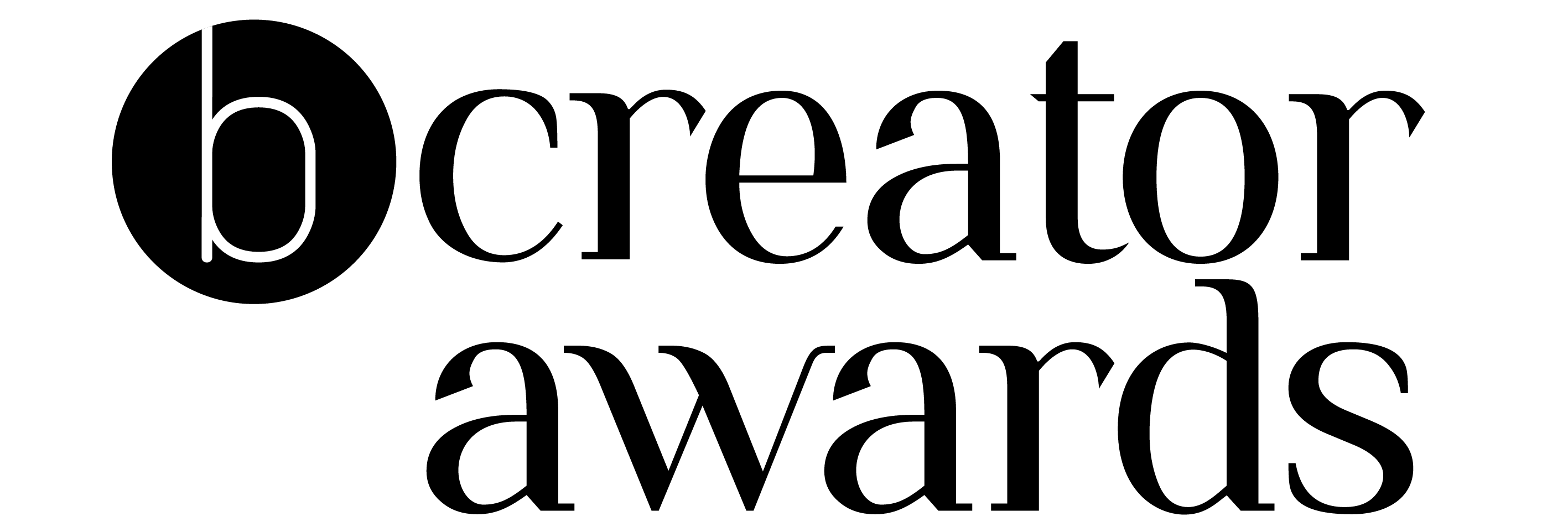Zoe Sugg speaks to Alice Audley about building an online empire, losing her privacy and putting life into perspective…
Photography: Alexandra Cameron
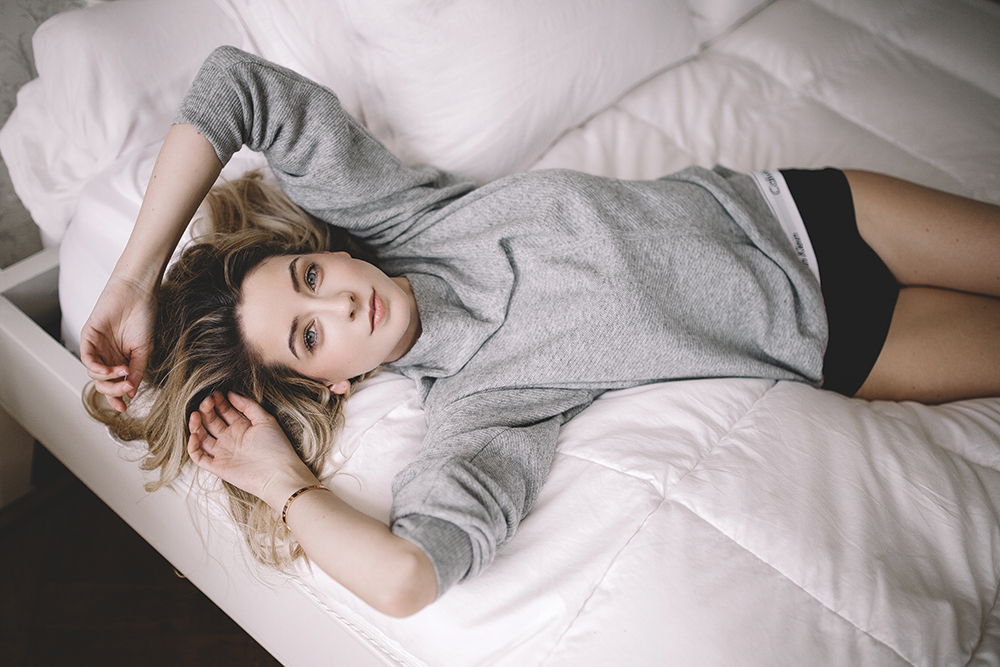
Zo-el-la: three syllables that are synonymous with social media. Three sounds that require no translation. Three mouth movements which, when combined, form a name universally acknowledged as the queen of the internet. Zo. El. La.
It’s a name that is imprinted in the minds of millions; a name that bloggers revere; a name that inspires social media users across the globe. And it’s a name that was created in the bedroom of a Wiltshire-born girl back in 2009. That girl? Zoë Sugg.
In the mainstream press, she’s often referred to as a ‘tween idol’, but Zoë’s fans aren’t just limited to Generation Z. She also has an audience comprised of older women (and men), who admire her as a 26-year-old businesswoman who has worked incredibly hard to carve a career in new media, built a multi-million pound empire and has – critically – remained likeable throughout. And it’s this side of Zoë that I’m interested in getting to know a little better.
We’re spending the day shooting in a mansion on the Brighton seafront and the brief to our photographer is: ‘stripped back, raw, natural, in control and woman (not girl)’. Zoë has agreed to the different style of shoot, a step away from her traditional ‘squeaky clean’ portrayal, and is sitting on an unmade bed with her hair loosely pinned back off her strikingly beautiful face. She is wearing minimal make-up and a set of grey Calvin Kleins, which cling flatteringly to her delicate figure. She’s got a tiny frame, but is perfectly in proportion and, although petite, her body is definitely that of a woman, not of a girl.

“People say ‘you have young teen viewers, you’re a teen role model’ and that ‘you should be doing this, or that’, but they often forget that I’m also a 26-year-old woman,” Zoë says of her public perception.
“I create the content that I want to create without thinking who is going to be watching it, and I’ve done that from day one,” she continues. “The minute you start questioning your own behaviour is the minute you’re not enjoying it anymore.”
This authenticity and consistency of character is one of the reasons she has gathered such a huge following. Zoë has more than 11 million subscribers on YouTube, receives over 7 million views on her blog each month, has nearly 10 million Instagram followers and more than 6.5 million on Twitter.
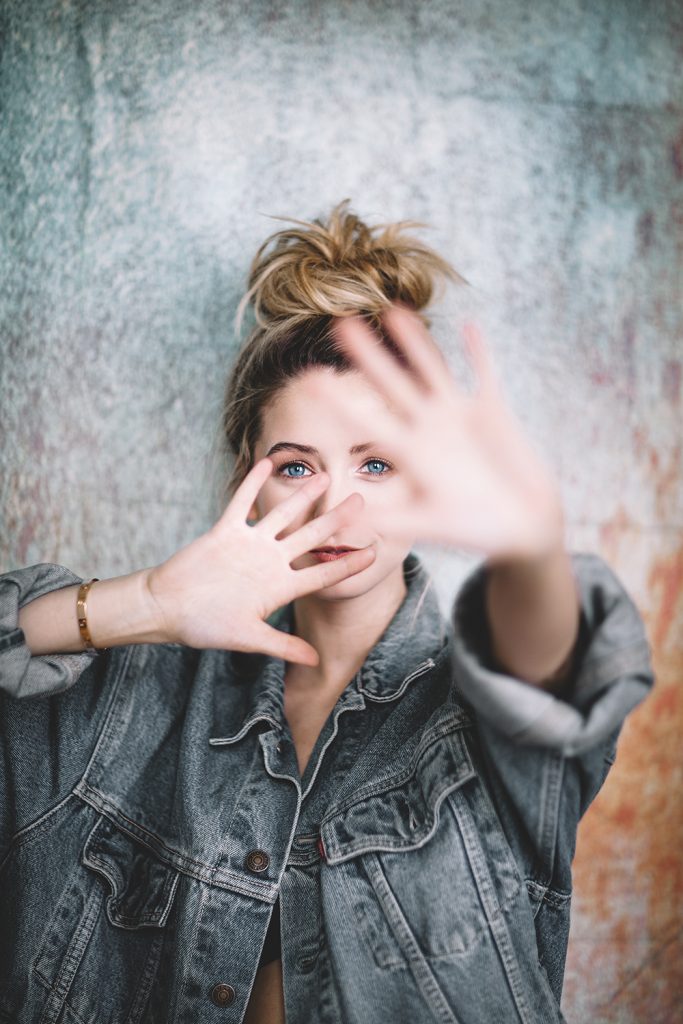
Indeed, as a UK female content creator, her following is unparalleled. She is in a league of her own. And, consequently, she is singled out by the press on a regular basis.
“It’s terrifying and I used to get really upset by it,” she says.
“When someone else is writing about you – and judging you differently to how you are – it’s horrible.
“I feel like with the boys [YouTubers] they’re at a very similar level and if they [the press] were going to write about them that they’ve got a big group to choose from. But, when it comes to a YouTube UK female, the spotlight is on me.”
It’s a position that took Zoë a while to come to terms with. “I wasn’t confident to be there on my own,” she says.
“I remember saying to Alfie [her boyfriend Alfie Deyes] one day, when I was really upset about something someone had written, ‘I wish there
was another girl who was alongside me. I wish I only had three million subscribers, I wish I didn’t have six million subscribers’ – or however many I had at the time.
“He said ‘no, you can’t think like that. You’re paving the way for everybody’.”
Zoë has since developed a thicker skin. “In the last year, I have grown a lot in terms of negativity,” she says.

“I used to think that it was the worst thing, but now I just don’t see it in the same way. I think it’s a mixture of having heard everything I could possibly ever hear and also because I think a lot more about the person who’s saying it – and why they might be saying it – rather than thinking of it as a reflection on me.”
That said, there are still moments – if she’s having a bad week – when comments can upset Zoë.
“Humans aren’t trained to hear awful things about themselves and think
it’s fine – no-one does that. It’s human nature to be offended or feel sad about things that aren’t very nice,” she says.
“Recently, I released a big lifestyle range and you just know that whenever something is launched you’re preparing yourself for people to crawl out of their hole and have something to say and then crawl back in again.
“There were a couple of bloggers moaning that I just slap my name on things. I just thought ‘either they’re very naÏve and they don’t understand how these things work or they’re just being catty’.
“It’s sad that you have to pre-empt that, and sad that you have to grow a thick skin before you can feel happy and confident online, but it’s just something that happens now.
“I was never bullied as a child. I enjoyed school, I had lots of friends, but as an adult I think I’ve seen and read more awful things than I ever did when I was young. I’ve been around quite bullyish behaviour, which is sad really.”
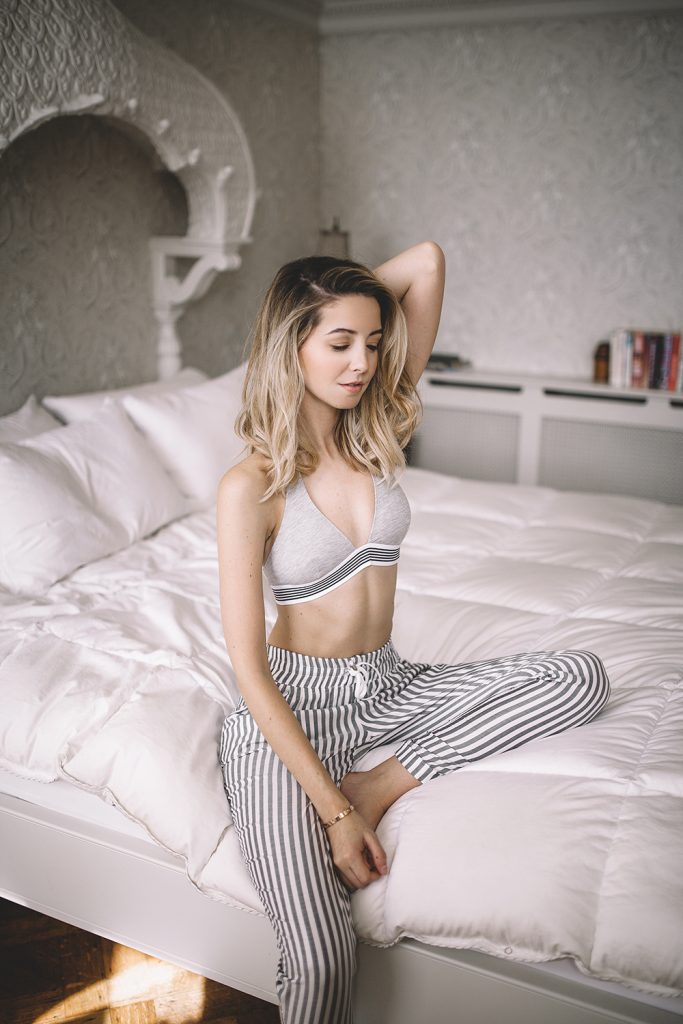
Indeed, Zoë would like to see bigger consequences for online bullying.
“If there was a way of making people too scared to do it, it would be much better for the younger generation,” she says.
“Online bullying can really damage people’s mental health.”
Mental health – and the importance of looking after one’s own – is a massive passion of Zoë’s. Having suffered from anxiety since the age of 14, Zoë knows what it’s like to struggle with ill mental health and wants to educate and help her viewers by sharing her experiences.
“Social media has definitely helped open up the conversation of mental health,” she says.
“Before, besides speaking about it to your friends – or googling it – there was nowhere to openly talk about it with other like-minded people.
“In the past, you might have spoken to someone who would say, ‘Oh, that sounds awful’ – someone who didn’t really understand it – but now you can use a hashtag and find people who feel the same way as you.
“Also, by writing about it on an open platform you can educate the people who perhaps don’t understand it – and I think that’s making a huge difference.”
Zoë is vocal about her mental health battles and speaks openly about having therapy. “I have a therapist who I speak to every single week. I don’t think I would even be able to sit here and have an interview if I didn’t have her,” she says.
Zoë’s weekly sessions have been integral to her happiness. “I’ve learnt a lot,” she says. “I’ve learnt when you can say ‘no’ and that you can never please everyone.”
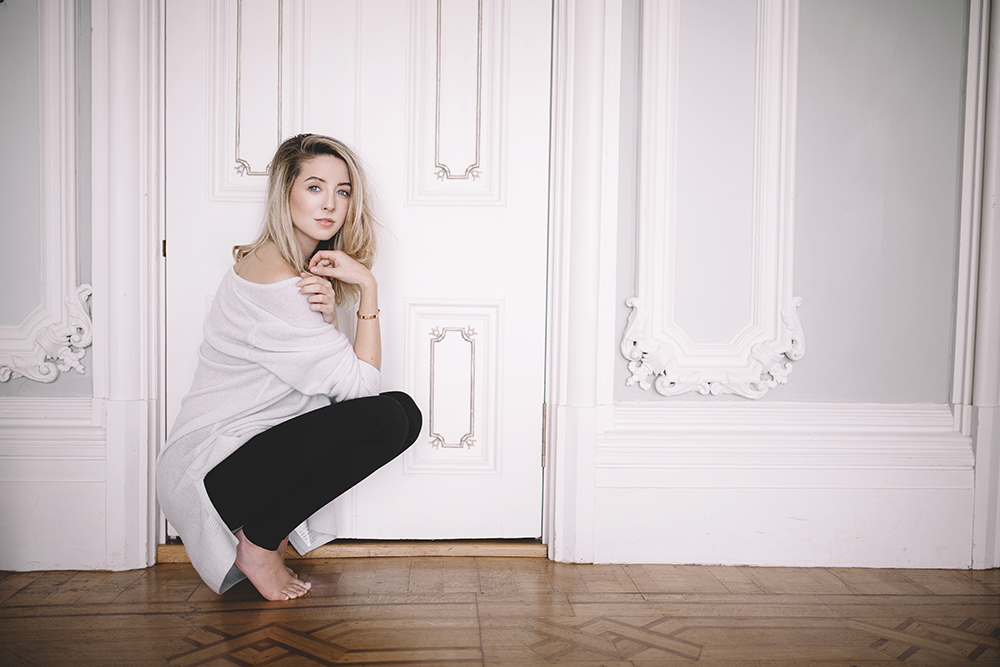
One “hurdle” that Zoë is trying to deal with is her privacy – or lack thereof. And Zoë admits to sometimes feeling like “a prisoner in [her] own home”.
“We [Zoë and Alfie] get people outside our house ringing the doorbell on a daily basis and open-top buses come round, so if they’re not knocking on the door, they’re looking in taking photos.
“Because of my anxiety, my house has to feel like my safe space – and it doesn’t really feel like that when you look out of your window and someone is taking a picture of you. I find that quite hard.
“It’s difficult because, half the time, you know that they’re not doing it out of spite and that there’s no hate there – people just love what you do and want to meet you, but – at the same time – if you don’t create that boundary then there’s no line.
“It’s tricky because part of what YouTubers are is so real and accessible; we just film our lives and it’s just us – there’s no cut the camera and we’re completely different. It’s not like we’re an actor or an actress, it’s ‘this is me, this is my house, this is my room – where I actually sleep – and this is my dog’ and I think that it closes the gap between a viewer and a YouTuber. People love watching other people living their lives – I love stuff like that – but it means people don’t think that there are any boundaries.
“It’s hard because you feel as though you can’t not be okay with it because people say ‘you put your life online, what do you expect?’ – but actually when you strip it back, it doesn’t matter who somebody is or what they do,
you wouldn’t knock on Mary’s house down the road if she’s not aware that you’re coming, so why does it make any difference?”
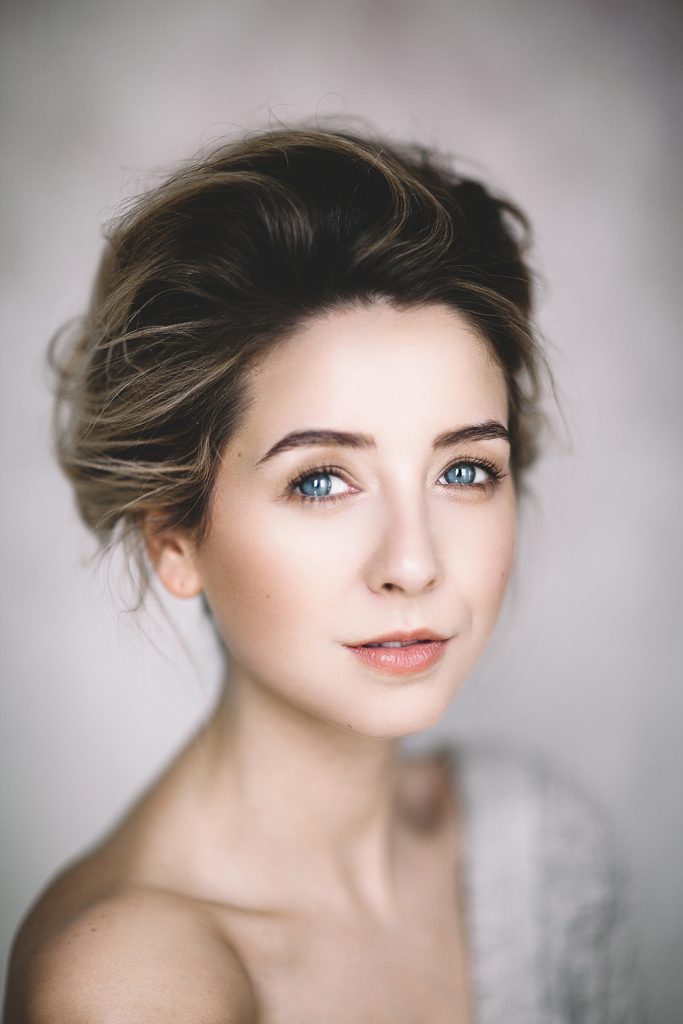
Zoë’s ascent to internet superstardom has enabled her to achieve a great many things – a best-selling book, beauty and lifestyle ranges and helping raise money for charities such as Mind and Cancer Research – but it has come at the cost of her anonymity. Something that when starting out neither she, nor anyone else envisaged. If she could go back to 2009, to her bedroom and to her computer, would she create Zoella again?
“Though there are certain things that I can’t do anymore – like this past summer when I saw somebody who was lying down by a fountain on a sunny day reading a book and I was like: ‘Ah, I’m going to do that’ and then I thought ‘Oh no, I can’t do that’ – and there are days where I wish no-one knew who I was, I would never trade it. I would still make videos and I would still choose to do what I did,” she says.
This decision is guided not just by the “amazing experiences” she’s had, but by the friends she’s made. “It’s the best thing in the world,” she says. “I turn this way and I’ve got my boyfriend, I turn that way and I’ve got my best friends and my brother.”

Though she would opt to take the same social media path and upload videos and lose her anonymity, Zoë is unsure whether or not she will share elements of her future – such as marriage and motherhood.
“Do you know, I don’t know. I feel like if I’d been asked that three years ago,
I would have said ‘hell yeah! I’m going to daily vlog and put the kids online – it doesn’t matter!’. But now I think that because it’s got to this scale and all of these things are happening when the camera’s off – like people coming to the house – it’s a lot more than I thought it would ever be. It does make you question it and think ‘do I want to do that?’,” Zoë says and furrows her brow in contemplation.
“Hmmmn, I definitely want to do pregnancy videos, though.”
Though children are on the roadmap at some point down the line, Zoë doesn’t have any immediate plans and is taking every day and every opportunity as it comes.

“The social media world didn’t even exist 10 years ago and now it’s huge.
It’s not even just the people doing it – there are jobs being created around it.
“People have finally grasped what it is and they’ve seen what can come from it, whereas before it was a bit confusing.
“Now there are so many people doing it and so many people are successful and have created so much that it’s not just ‘I’ll take your word for it and I’ll watch a couple of your videos’ – people can see how much of an impact it has had.”
One particular group of people the world of social media has helped is the female sex. Zoë is “definitely” a feminist and agrees that the online world has enabled many women to become their own bosses and control their own destinies.
“I think that it’s amazing that there are so many women bossing it and having the freedom to do whatever they really want to do,” she says.
“I’m so glad that I followed on with something that I was enjoying even though I had no idea that it could ever amount to anything.”
It certainly has amounted to something. To rather a lot. Indeed, working with Zoë is top of a huge number of brands’ wishlists and the fact that she is so particular as to whom she works with, turning down 95% of the offers that come in, only adds to her appeal.
“If people knew all the things that I turn down – like sponsors or cool experiences – they would be like ‘are you crazy?’. But if it doesn’t sit right with me, I’m just not going to do it,” Zoë says.
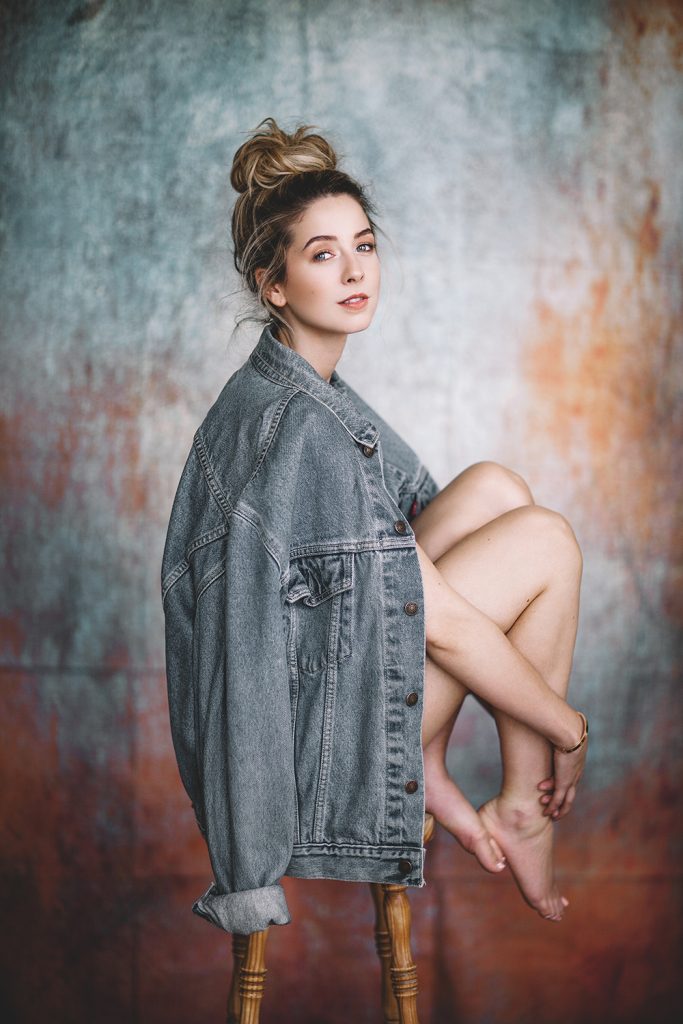
The work that Zoë does accept is always disclosed.
“From day one it was ‘disclose everything that you’re doing’, so when
all this ASA [Advertising Standards Authority] stuff came in it was no different for me – I was just putting AD in my title rather than in the description box,” she says.
“There are definitely a lot of people who don’t do it [disclose] because they think that they’ll get away with it,” she continues, “but all of these things will keep getting tighter and tighter and they will come down on you if you’re not doing it – so you may as well comply – there’s no point in trying to avoid it.”
Zoë plans to continue working with brands (of her choice) and uploading videos to YouTube, but cannot predict the future of her career. If her channel were to be deleted, YouTube to collapse, or the world of social media to implode, what would she like to be remembered for?
“I just want to think that when people watch my videos they finish them feeling better about themselves, or the day that they’ve had, or that I’ve inspired them to do things that they wouldn’t have done otherwise,” she says.
“I would like to think that I’ve helped people.”
Well, Zoë, I can think of 11 million people who would agree.
